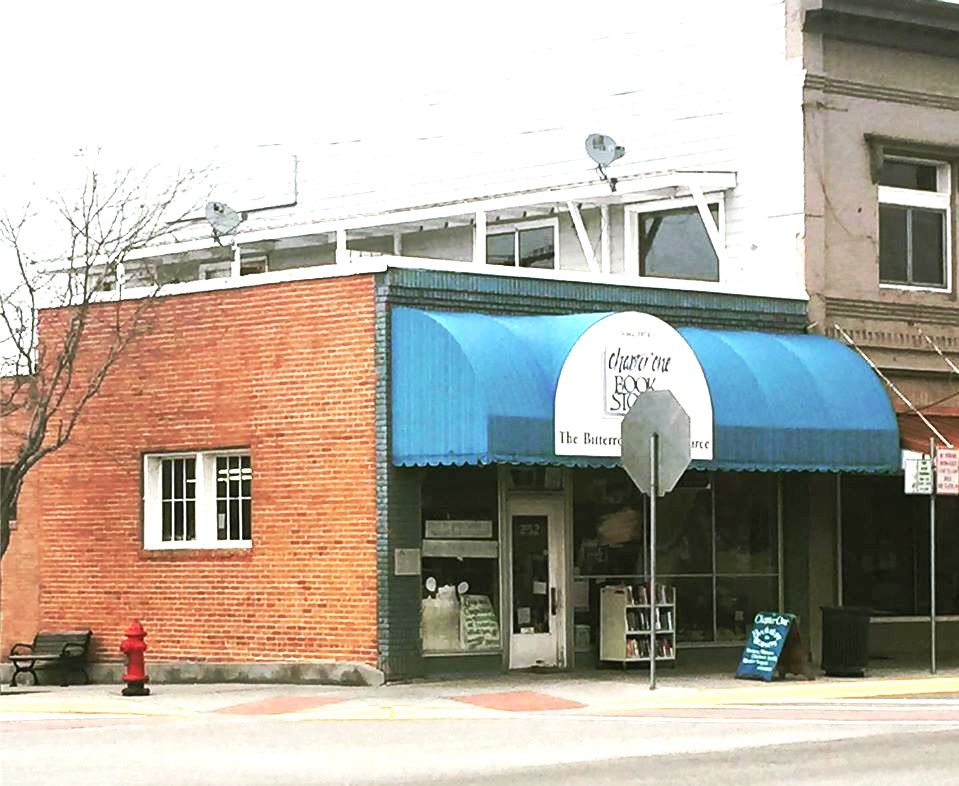 This spring, Montana was among the first states in the country to reopen during the coronavirus pandemic, with retailers allowed to resume in-store operations in late April. Shawn Wathen and Mara Luther, owners of Chapter One Book Store in Hamilton, Mont., decided to reopen in April. Wathen reported that when they initially reopened, they did not require customers to wear masks but heavily encouraged them to do so, and, depending on the day, 50%-80% of customers wore masks.
This spring, Montana was among the first states in the country to reopen during the coronavirus pandemic, with retailers allowed to resume in-store operations in late April. Shawn Wathen and Mara Luther, owners of Chapter One Book Store in Hamilton, Mont., decided to reopen in April. Wathen reported that when they initially reopened, they did not require customers to wear masks but heavily encouraged them to do so, and, depending on the day, 50%-80% of customers wore masks.
At the time, Wathen explained, Montana was "still a bit of a Xanadu," with low numbers of infections, very few deaths and a 14-day quarantine period imposed on all out-of-state visitors. That mandatory quarantine was lifted in June, he continued, and both infections and deaths have been on a steep rise ever since as travelers and tourists have "flooded the state."
The governor has since issued a mandatory mask directive, which gave Wathen and Luther more leverage for enforcing masks in store, but unfortunately, the local sheriff and county commissioners opted to not enforce the directive. That decision led to the resignation of Hamilton's public health officer and some staff. Wathen wrote to the commissioners to express his displeasure, which he said "did not go well."
"It would be grand if Mara and I were able to not have to discuss the state's mask policy every day," he said, "but no such luck." He noted that while most people are wearing masks now, there are still those who try to avoid doing so, and on rare occasions some customers will walk out of the store rather than put on a mask. "The idea that a public health directive is a political issue flabbergasts me," he said.
Wathen and Luther have continued to social distance, disinfect surfaces and offer curbside and online services. He recalled that after one customer made a dismissive comment about their jars of sterilized and dirty pens, Luther explained that with only two people running the store, they would have to close if either got sick. The customer seemed to appreciate that point. It is another instance, Wathen added, of booksellers having to be community educators.
After protests began in late May in response to the killing of George Floyd, Wathen and Luther devoted their main street front window to a display of topical books. They also wrote the names of more than 50 Black men and women killed by police over the last five years on the glass. He added that although Hamilton is very white, he and Luther are trying to keep these issues "in the front of our public consciousness."
---
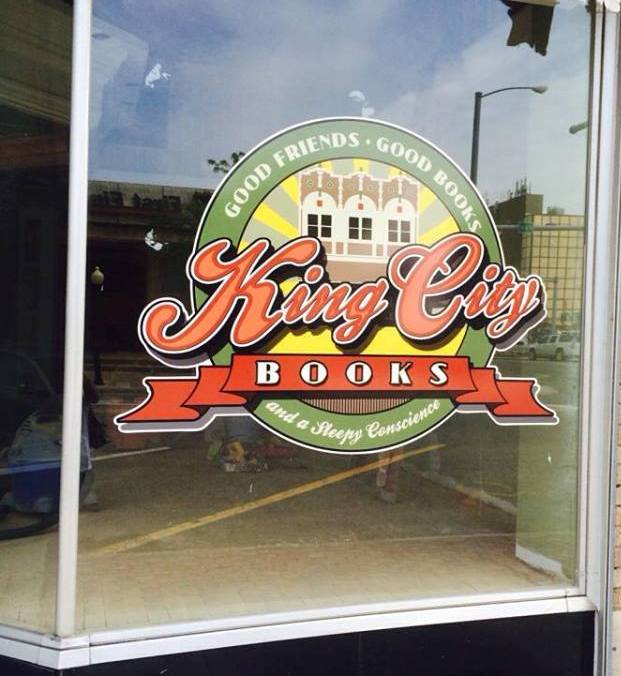 In Mt. Vernon, Ill., King City Books has been closed since the onset of quarantine. Due to a 57% rent increase at the store's original location, owners Kendra Peterson and her daughter Julie Kubitz had planned to permanently close the store this spring.
In Mt. Vernon, Ill., King City Books has been closed since the onset of quarantine. Due to a 57% rent increase at the store's original location, owners Kendra Peterson and her daughter Julie Kubitz had planned to permanently close the store this spring.
Instead, said Kubitz, a long-time customer came into the store a little bit before quarantine began and told them "you are moving into my building." It was the kind of offer that one doesn't refuse, she noted, and the ensuing quarantine was actually something of a "blessing in disguise," as it gave her and Peterson a chance to get everything packed and move out of the old building.
They began renovations in the new building at the end of May. In addition to putting in new floors and a new coat of paint, they've been busy building an ADA-accessible bathroom, an office, registers and counters for the store's cafe area. Kubitz said it was her dream to be back up and running by the end of July, but it looks like mid-September is much more likely. Kubitz had also hoped to set up an IndieLite store for King City Books, but she hasn't had the time yet. Instead they've been making due with Bookshop.org sales and an incredible amount of community support.
"It has warmed our hearts that so many people were very upset with the initial decision to close," said Kubitz. "If it weren't for the kindness of others, there wouldn't be a future for King City Books."
---
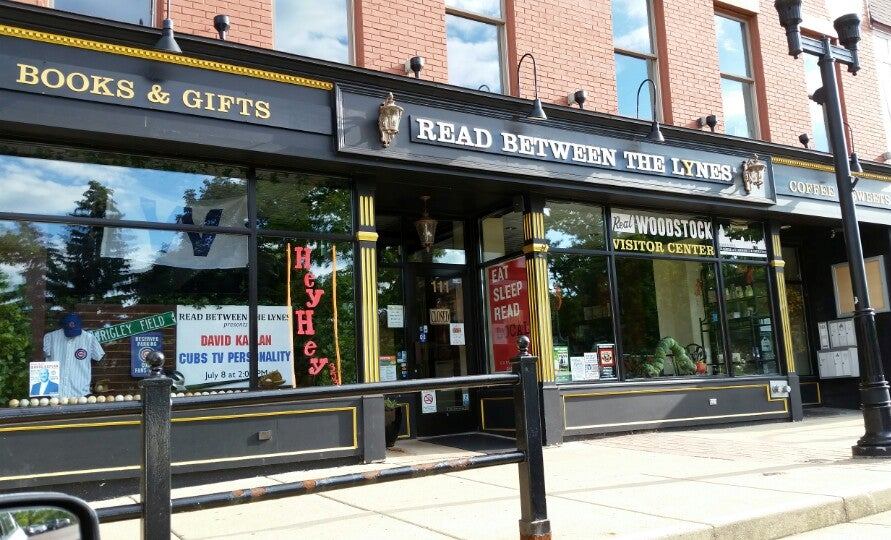 Arlene Lynes, owner of Read Between the Lynes in Woodstock, Ill., said she's reopened for browsing and is operating at around 30% of the store's previous hours. She and her staff have taken out some displays to give customers more space and have marked out preferred traffic patterns on the floor. There are plexiglass barriers around the cafe ordering areas and the checkout stations. One of those stations, she added, has been shut down to give staff members more space. Thankfully, Lynes added, the store hasn't experienced any problems with mask compliance. --Alex Mutter
Arlene Lynes, owner of Read Between the Lynes in Woodstock, Ill., said she's reopened for browsing and is operating at around 30% of the store's previous hours. She and her staff have taken out some displays to give customers more space and have marked out preferred traffic patterns on the floor. There are plexiglass barriers around the cafe ordering areas and the checkout stations. One of those stations, she added, has been shut down to give staff members more space. Thankfully, Lynes added, the store hasn't experienced any problems with mask compliance. --Alex Mutter
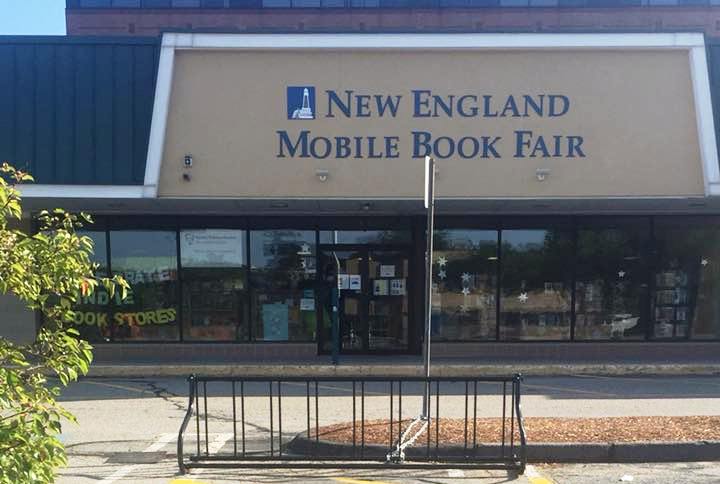 The New England Mobile Book Fair bookstore, Newton, Mass., has launched a $75,000 GoFundMe campaign to help it "move, restock, take care of our staff and take us into the future." The store must vacate its location by the end of August because its building is being razed, and is seeking a new site.
The New England Mobile Book Fair bookstore, Newton, Mass., has launched a $75,000 GoFundMe campaign to help it "move, restock, take care of our staff and take us into the future." The store must vacate its location by the end of August because its building is being razed, and is seeking a new site.











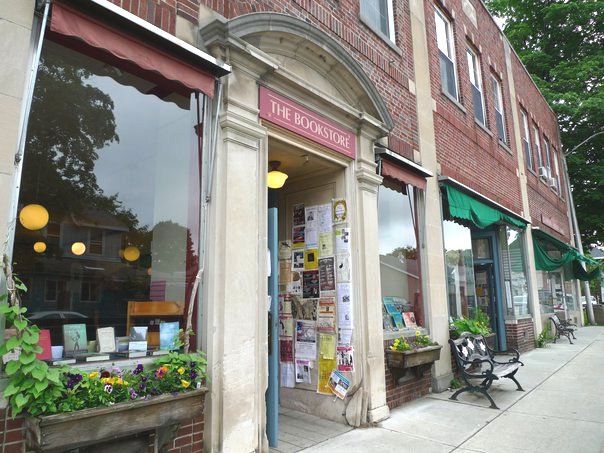 "Friends--
"Friends--
 Bertrams, the former U.K. wholesaler that went
Bertrams, the former U.K. wholesaler that went  After several months of speculation, Amazon has confirmed that the service will launch in Sweden this fall, the
After several months of speculation, Amazon has confirmed that the service will launch in Sweden this fall, the 
 This spring, Montana was among the first states in the country to reopen during the coronavirus pandemic, with retailers allowed to resume in-store operations in late April. Shawn Wathen and Mara Luther, owners of
This spring, Montana was among the first states in the country to reopen during the coronavirus pandemic, with retailers allowed to resume in-store operations in late April. Shawn Wathen and Mara Luther, owners of  In Mt. Vernon, Ill.,
In Mt. Vernon, Ill.,  Arlene Lynes, owner of
Arlene Lynes, owner of  Last evening, a group of independent booksellers gathered on Zoom to celebrate and discuss Peter Geye's new novel, Northernmost (Knopf, August 18). Pictured are: (l.-r., top row) author Peter Geye; Pamela Klinger-Horn, Excelsior Bay Books; Mary O'Malley, Skylark Bookshop; (middle row) Alex George, Skylark Bookshop; Kristen Sandstrom, Apostle Island Booksellers; Nancy Simpson-Brice, The Book Vault; (Bottom Row) Lisa Baudoin, Books & Company; Jessalyn Norcross, McLean and Eakin Booksellers.
Last evening, a group of independent booksellers gathered on Zoom to celebrate and discuss Peter Geye's new novel, Northernmost (Knopf, August 18). Pictured are: (l.-r., top row) author Peter Geye; Pamela Klinger-Horn, Excelsior Bay Books; Mary O'Malley, Skylark Bookshop; (middle row) Alex George, Skylark Bookshop; Kristen Sandstrom, Apostle Island Booksellers; Nancy Simpson-Brice, The Book Vault; (Bottom Row) Lisa Baudoin, Books & Company; Jessalyn Norcross, McLean and Eakin Booksellers.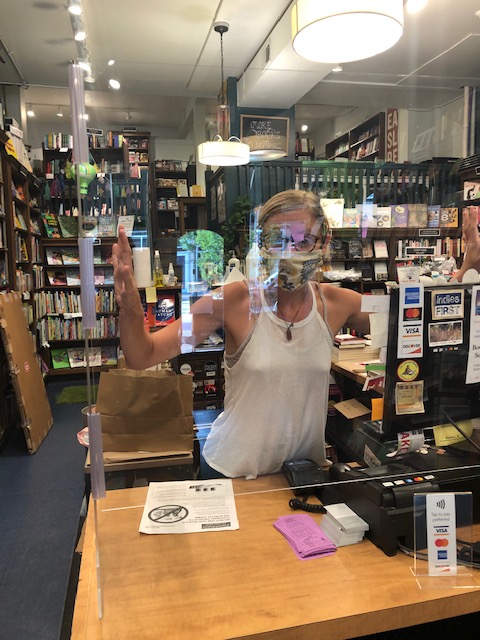 "We are now open for browsing!"
"We are now open for browsing!" 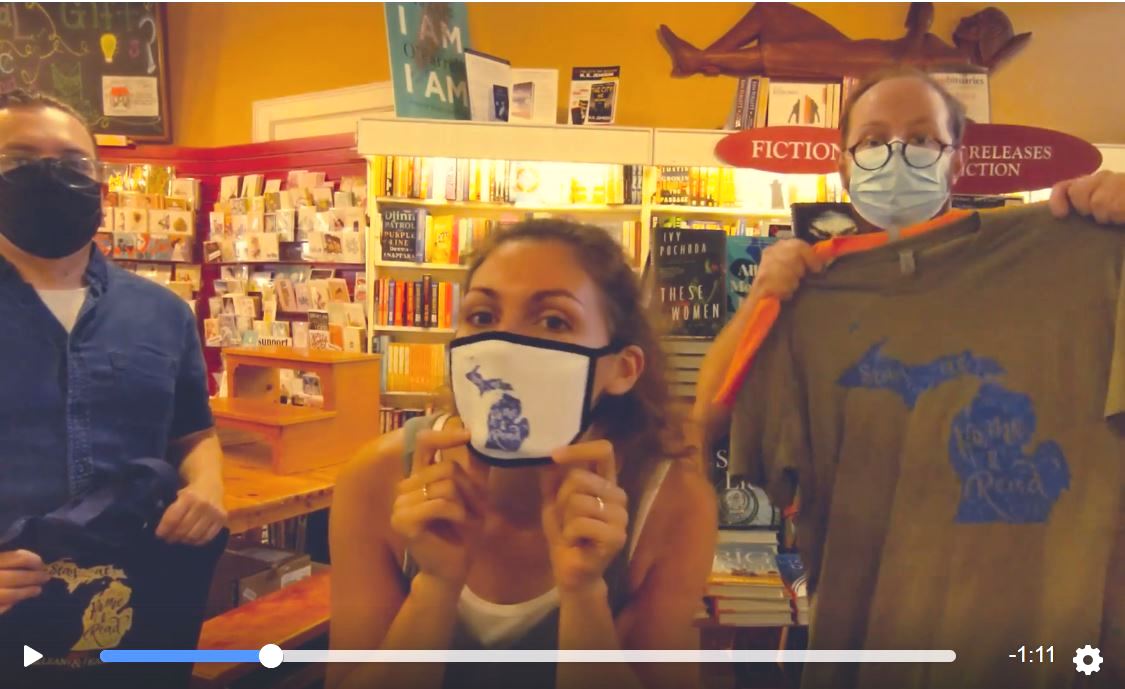
 To Sleep in a Sea of Stars
To Sleep in a Sea of Stars The third volume in a series that includes How to Think: A Survival Guide for a World at Odds and The Pleasures of Reading in an Age of Distraction, Baylor University humanities professor Alan Jacobs's Breaking Bread with the Dead: A Reader's Guide to a More Tranquil Mind makes a gentle, yet insistent, argument for the "value of paying attention to old books that come from strange times and are written in peculiar language and frankly don't make a whole lot of sense."
The third volume in a series that includes How to Think: A Survival Guide for a World at Odds and The Pleasures of Reading in an Age of Distraction, Baylor University humanities professor Alan Jacobs's Breaking Bread with the Dead: A Reader's Guide to a More Tranquil Mind makes a gentle, yet insistent, argument for the "value of paying attention to old books that come from strange times and are written in peculiar language and frankly don't make a whole lot of sense."